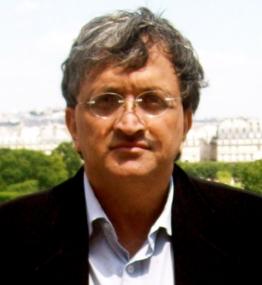Ambedkar Lecture Series to Explore Influences on Indian Society
New York, March 16, 2012—The Columbia Law School Dr. B.R. Ambedkar Chair in Indian Constitutional Law will present a lecture series that explores significant influences on Indian society. The chair is named after Bhimrao Ramji Ambedkar, one of the most influential political leaders and social reformers of modern India, and the architect of the Indian Constitution. He earned a master’s degree from Columbia University in 1915, and a Ph.D. in 1927. He died in 1956.
Reconciling Gandhi with Ambedkar: Ramachandra Guha, with Professor Jagdish Bhagwati in the chair, will review the series of debates between Gandhi and Ambedkar on the reform of the caste system and the eradication of untouchability. While the two men are often seen as adversaries who advocated alternate approaches to political action, their work to deepen democracy and undermine social hierarchies was in fact complementary.
Tues., March 20, 7:15 p.m. – 9 p.m. in the Rotunda of Columbia University’s Low Library.
